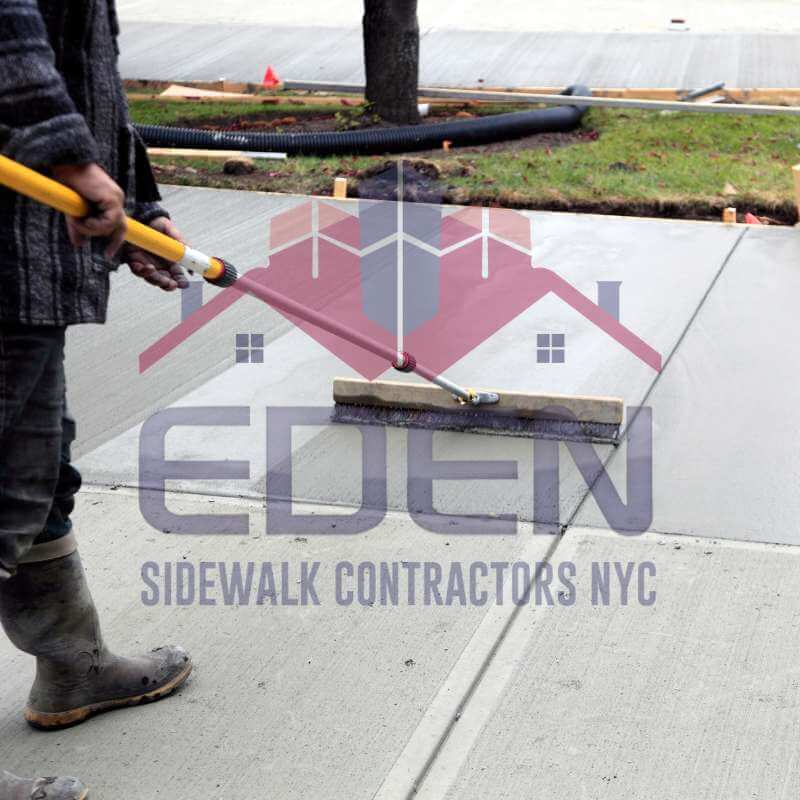
What Type of Concrete Should Be Used for Sidewalks?
Whether installing new sidewalks or repairing the damaged ones, selecting the right type of concrete is crucial. These structures are subjected to constant weather changes, which can cause them to crack and get damaged.
For their longevity and durability, selecting the right type of concrete is a key consideration. Let us explore ideal types of concrete for sidewalks while addressing the factors like composition, strength, weather resistance and finishing options.
Concrete Composition
Concrete is a composition of cement, water, aggregate (sand, gravel, or crushed stone) and admixture. The proportion of these components can vary depending on the characteristics of the finished product.
- Cement: Cement acts as a binder in concrete that holds the aggregate together. The common type of cement used in sidewalk construction is portland cement.
- Aggregate: Aggregate contributes to the overall strength, better compaction, and smooth finish of concrete. For sidewalks, the maximum size of coarse aggregate ranges from ⅜ to ¾ inches.
- Water: Water activates cement by starting the chemical reaction known as hydration that causes concrete to harden. The water-to-cement ratio significantly affects the strength and durability of concrete. For sidewalks, the water-to-cement ratio should be around 0.45 to 0.6.
- Admixture: Admixtures are additives that modify the properties of concrete. For sidewalk construction, air-entraining admixtures are commonly used, especially in colder climates. These admixtures create tiny air bubbles within the concrete that help prevent damages caused by the freeze-thaw cycle.
Concrete Strength and Durability
Sidewalks must withstand significant stress over time for which selecting a concrete mix with the right strength is essential. Concrete strength is measured in pounds per square inch (PSI). For sidewalks, 3500 PSI to 4000 PSI is generally recommended.
In addition to strength, the sidewalk must be durable, as it is exposed to various environmental factors. The concrete mix being used must be designed to resist cracking, scaling, and other forms of deterioration.
Use of high-quality aggregates, proper curing, and the use of air-entraining admixtures all contribute to the durability of sidewalk concrete.
Types of Concrete for Sidewalks
The type of concrete you can use for a sidewalk depends upon a number of factors, including the amount of weight it will support and the climate it will experience. Some common types of concrete that can be used in sidewalks include:
Regular Concrete
Regular concrete has a comprehensive strength of around 3500 to 4000 PSI. It is a standard mix that provides adequate strength, durability, and workability for most sidewalks.
High-strength Concrete
In areas where sidewalks may experience severe environmental conditions, high-strength concrete may be used. This type of concrete has a comprehensive strength of 6000 PSI or higher.
Fiber-Reinforced Concrete
Fiber-reinforced concrete contains fibrous materials that increase its tensile strength and reduce the likelihood of cracking. These fibers can be made of steel, glass, synthetic materials, or natural fibers. For sidewalks, synthetic fibers like polypropylene are commonly used.
Ready-Mix Concrete
The most common type of concrete used for sidewalks and curbs is ready-mix concrete. It has a thickness of 4 inches, in addition to a 2-3 inch base of gravel, sand, limestone, or another aggregate.
The industry minimum strength for ready-mix concrete is 4000 PSI but 4500 PSI is also an efficient choice.
Concrete with Aggregate Rocks
This concrete uses crushed aggregate rock that has been sized and shaped to increase its strength and durability. It's a good choice for sidewalks that experience heavy foot traffic.
Conclusion
Choosing the right type of concrete is essential to ensuring sidewalks can withstand daily environmental stresses over time. Regular concrete is sufficient for most sidewalk applications, but high-strength, fiber-reinforced, ready-mix, and concrete with aggregate rocks can be used for additional strength and durability.
Proper installation and curing practices are equally important in maximizing the lifespan of the sidewalk. By selecting the right concrete mix and ensuring proper construction practices, you can create sidewalks that are not only functional but also durable and visually appealing for years to come.
For expert sidewalk construction and repair services, contact Eden. Our experienced team can provide you with a high-quality, long-lasting solution that meets your specific needs.